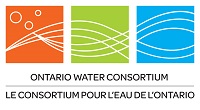What is “smart water” and what does it mean for the water/wastewater industry? That was the topic of a full-day forum on November 30, 2016 hosted by the Southern Ontario Water Consortium (SOWC), the Ontario Clean Water Agency (OCWA) and the Water Technology Acceleration Project (WaterTAP) in Toronto.
Increasingly, “smart” tools and techniques are being developed and implemented for water management and treatment that help to extend asset life, reduce energy and water use, and provide better client service, ultimately leading to more strategic asset management and saving money over the long term.
Some examples of data utilization from smart information systems include distribution sensors for water system optimization, dynamically controlling flows to sanitary sewer overflows (SSOs), and energy usage and sludge optimization. On the consumer side, homeowners can receive live consumption data about their water usage.
A number of factors are driving this change:
–> The availability of tools, sensors and technologies that have a demonstrated benefit
–> The need for system owners to sustainably manage long-term costs
–> Community expectations surrounding energy efficiency and GHG reductions
–> Public expectations that their utilities become more transparent and allow easier access to information
The forum provided an opportunity for companies, municipalities and researchers to discuss the main challenges and opportunities for more widespread adoption of “smart” technologies and approaches. Our key question guiding discussions was: “What specific actions or changes would facilitate transforming to fully “smart” water utilities through the uptake of innovative approaches and technologies?” Participants included representatives from the energy sector – which uses smart technology in many areas, including the electricity grid, metering and conservation tools – who shared with us best practices and lessons learned.
Thank you to everyone who participated.
Please see below a summary document with the outcomes of the workshop:


